Audi tweaks the RS 7’s engine for more power and attitude. But, how does it get along with 45 extra horses
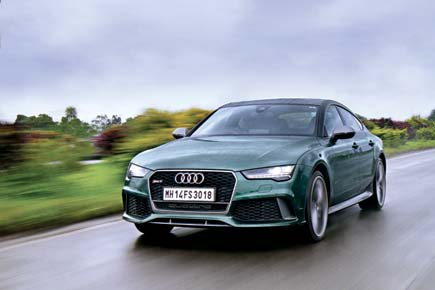
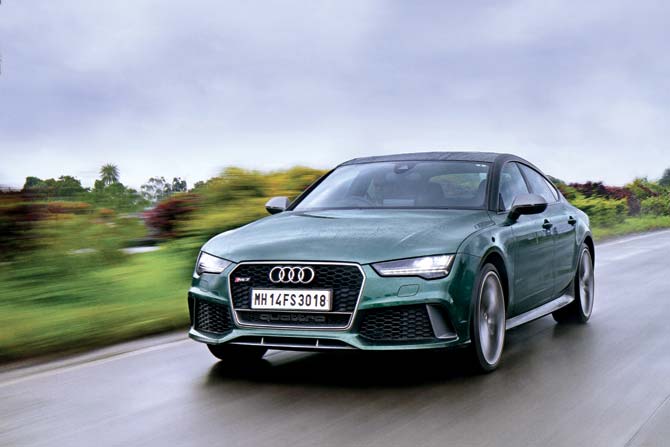
ADVERTISEMENT
You have to be someone phenomenal to think up a car like this. You have to be a notch higher to commission its production. And, if you actually buy this one, you will definitely be guaranteed a special place in the afterlife. At 605 horsepower, the RS 7 Performance isn’t just any ordinary sports car.
Of course, the RS 7 was no slouch. It was a near two-tonne four-door coupé that looked as good in blue as it did in its gangster shade of matte grey. But, for whatever reason, Audi decided that 560 PS wasn’t good enough and tweaked the twin-turbo V8 motor to now deliver 605 PS accompanied by an over-boost mode that produces 750 Nm of twist for up to 15 seconds. What did the RS 7 Sportback do to deserve this? For starters, the only reason the RS 7 was created was because there was some strange force propelling Ingolstadt to go ahead and make it. It served a specific audience. Its matte-grey exterior at the time somewhat altered checklists for many. It had an element of novelty.
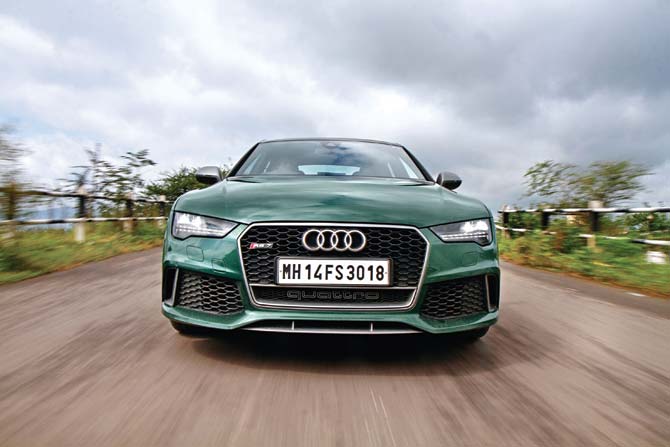
Now, force-feeding is never a good thing; and sometimes, it can be downright cruel. Thankfully, force-feeding a car can be a great idea, especially when it’s a diet of petrol and adrenaline. Not that the RS 7 needed any more feeding. It had lungs the size of a fighter-jet’s and could breathe fire, and it showed. This ‘performance’ version of the RS 7, the one that’s stepped in globally, is all of that, plus eight per cent more madness, rush, power — call it what you will — and over-boost to the tune of 50 Nm.
The difference between the RS 7 and the ‘performance’ is a bit more than one Suzuki Alto worth of horsepower. For starters, there’s a ‘drive select’ button on the steering wheel, just below where your right thumb usually finds peace. There are still four modes: comfort, auto, dynamic and individual. There’s still a lot of attitude, thanks to the sloping roof on this five-metre Sportback and the 21-inch wheels with 275-section rubber running a 30 profile.
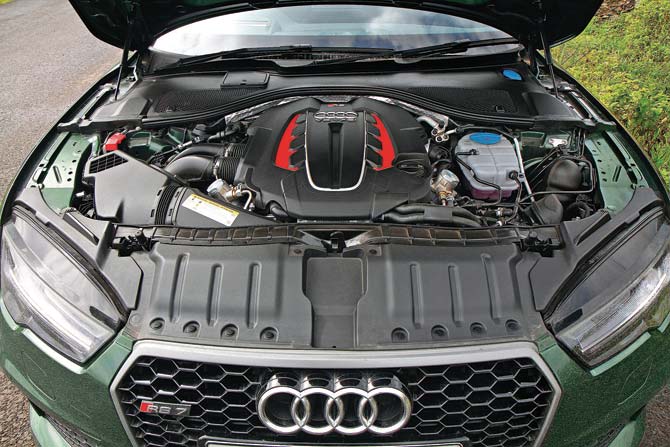
The interior is a place that you could call home, if you enjoy spending time lurking around with a sleeping bass band residing under the bonnet. That’s right. There’s no lead guitar or percussion. You have four bassists and four baritones. They switch seamlessly in between: drive relaxed and they give you more kilometres to the litre and release even lesser carbon oxides. Drive angry and the response is suitably terrifying. That it sounds like a thunderstorm in your boot is secondary. Firstly, it’s what’s changed underneath the skin.
The 4.0-litre BiTurbo FSI V8 now makes 605 PS, yes, but it does so between 6,000 and 6,800 RPM. The red-line has been raised by 200 RPM and, moreover, the over-boost torque of 700+50 Nm peaks between 2,500 and 5,500 RPM. Notably, it only kicks in when you’re in ‘dynamic’ mode.
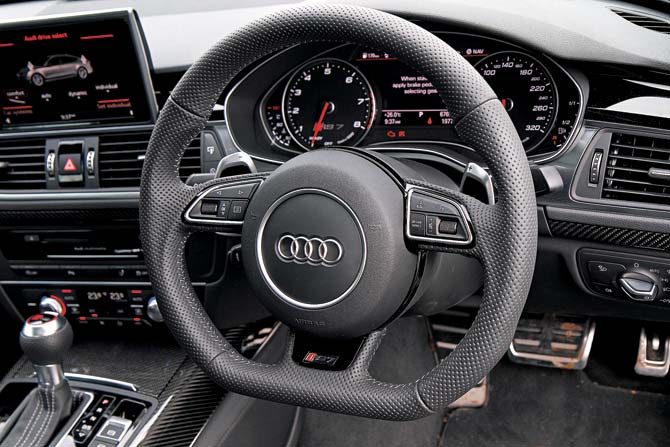
With the RS 7 performance’s 275’s scouring for traction on the wet road, it was time to test mettle. Procedure followed, the RS 7 performance rocketed off the line, squirming a little sideways and back. The ride quality, even with the 30-profile rubber, is actually quite good and the chequered leather seats are supremely comfortable and give the right kind of support at all times. Surprisingly, I partially expected to be thrown around in the tight bends, but the quattro grips goes around dismissing the pouring rain like spots of dew. It’s reassuring, to say the least.
The downside to all of this is the deceptive nature of the sensation of speed. At 70 km/h, it feels like you’re doing 30 or coming to a standstill. It feels unbelievably effortless and the note from the motor, which has active cylinder deactivation, when it’s on four, sounds like the bassists at work. It’s only when your foot pushes itself that the baritones start warming up. It’s all building up the thrusters from there on. Get traffic, though, and the lift-off, especially if it drops you out of the peak torque zone below 1,750 revs, is accompanied by an audible drone that sounds like disappointed thrusters cooling down. It is efficient. More than the one with 560 ponies. With a 4.5-km/l city figure and eight on the highway, it’s an overall 5.4 km/l. Not half bad, is it?
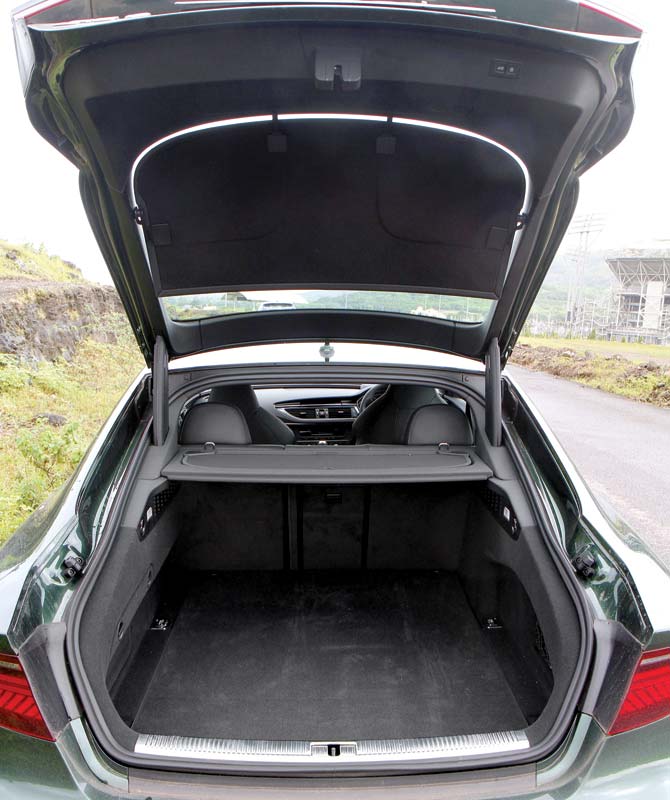
Audi should have bookings for the RS 7 Performance open as you read this. With the RS 7 priced at R1.4 crore, the ‘Performance’ should be available just upwards of R1.5 crore (ex-showroom). Over-boost doesn’t kick in hard; it kicks in like a shot of NOS. Either that or your senses are already overloaded. If something untoward does happen, there’s always that plea of temporary insanity.
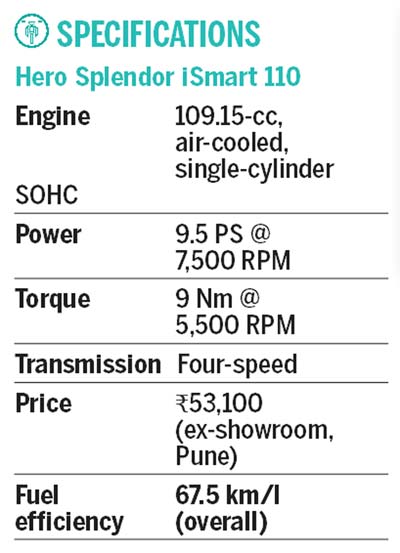
 Subscribe today by clicking the link and stay updated with the latest news!" Click here!
Subscribe today by clicking the link and stay updated with the latest news!" Click here!






